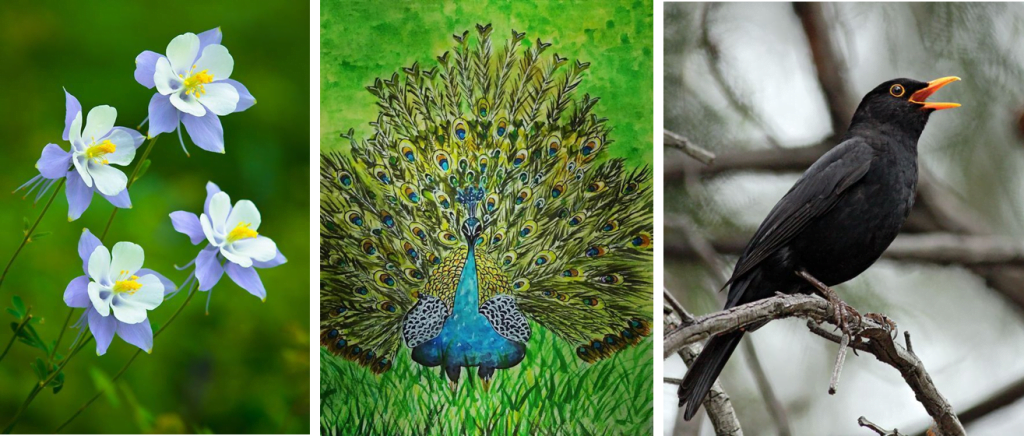Love is in the air. On this Valentine’s Day, I felt like sharing Osho’s thoughts on LOVE from his most controversial discourse – “सम्भोग से समाधी की ओर — From Sex to Super consciousness” that he delivered in the evening of 28th August 1968 at the Gowalia Tank ground in Mumbai, where he talked about sex and its transformation – the genesis of love. I am sharing it in three parts. Here is the second one. You may find it lengthy but bear with me as I couldn’t curtail it beyond this.
…Try asking a medical practitioner what health is? It is very strange, but no doctor in the world can tell you what health is! With the whole of medical science concerned with health, isn’t there anyone who is able to say what health is? If you ask a doctor, he will say he can only tell you what the diseases are or what the symptoms are. He may know the different technical term for each, and every disease and he may also be able to prescribe the cure. But health? About health, he does not know anything. He can only state that what remains when there is no disease is health. This is because health is hidden inside man. Health is beyond the definition of man.
Sickness comes from the outside hence it can be defined; health comes from within hence it cannot be defined. Health defies definition. We can only say that the absence of sickness is health. The truth is, health does not have to be created; it is either hidden by illness or it reveals itself when the illness goes away or is cured. Health is inside us. Health is our nature.
Love is also inside us. Love is our inherent nature. Basically, it is wrong to ask man to create love. The problem is not how to create love, but how to investigate and find out why it is not able to manifest itself. What is the hindrance? What is the difficulty? Where is the dam blocking it?
If there are no barriers, love will show itself. It is not necessary to persuade it or to guide it. Every man would be filled with love if it weren’t for the barriers of false culture and of degrading and harmful traditions. Nothing can stifle love. Love is inevitable. Love is our nature.
The Ganges flows from the Himalayas. It is water; it simply flows — it does not ask a priest the way to the ocean. Have you ever seen a river standing at a crossroads asking a policeman the whereabouts of the ocean? However far the ocean may be, however hidden it may be, the river will surely find the path. It is inevitable: she has the inner urge. She has no guidebook, but, infallibly, she will reach her destination. She will crack through mountains, cross the plains and traverse the country in her race to reach the ocean. An insatiable desire, a force, an energy exists within her heart of hearts.
But suppose obstructions are thrown in her way by man? Suppose dams are constructed by man? A river can overcome and break through natural barriers — ultimately, they are not barriers to her at all — but if man-made barriers are created, if dams are engineered across her, it is possible she may not reach the ocean. Man, the supreme intelligence of creation, can stop a river from reaching the ocean if he decides to do so.

In nature, there is a fundamental unity, a harmony. The natural obstructions, the apparent oppositions seen in nature, are challenges to arouse energy; they serve as clarion calls to arouse what is latent inside. There is no disharmony in nature.
When we sow a seed, it may seem as if the layer of earth above the seed is pressing it down, is obstructing its growth. It may seem so, but in reality, that layer of earth is not an obstruction; without that layer the seed cannot germinate. The earth presses down on the seed so that it can mellow, disintegrate, and transform itself into a sapling. Outwardly it may seem as if the soil is stifling the seed, but the soil is only performing the duty of a friend. It is a clinical operation. If a seed does not grow into a plant, we reason that the soil may not have been proper, that the seed may not have had enough water or that it may not have received enough sunlight — we do not blame the seed.
But if flowers do not bloom in a man’s life, we say the man himself is responsible for it. Nobody thinks of inferior manure, of a shortage of water or of a lack of sunshine and does something about it, the man himself is accused of being bad. And so the plant of man has remained undeveloped, has been suppressed by unfriendliness and has been unable to reach the flowering stage.
Nature is rhythmic harmony. But the artificiality that man has imposed on nature, the things he has engineered across it and the mechanical contrivances he has thrown into the current of life have created obstructions at many places, have stopped the flow. And the river is made the culprit. “Man is bad; the seed is poisonous,” they say.
I wish to draw your attention to the fact that the basic obstructions are man-made, are created by man himself — otherwise the river of love would flow freely and reach the ocean of God. Love is inherent in man. If the obstructions are removed with awareness, love can flow. Then, love can rise to touch God, to touch the Supreme.
What are these man-made obstacles? The most obvious obstruction has been the opposition to sex and to passion. This barrier has destroyed the possibility of the birth of love in man.
The simple truth is that sex is the starting point of love. Sex is the beginning of the journey to love. The origin, the Gangotri of the Ganges of Love, is sex, passion — and everybody behaves like its enemy. Every culture, every religion, every guru, every seer has attacked this Gangotri, this source, and the river has remained bottled up. The hue and cry have always been, “Sex is sin. Sex is irreligious. Sex is poison,” but we never seem to realize that ultimately it is the sex energy itself that travels to and reaches the inner ocean of love. Love is the transformation of sex energy. The flowering of love is from the seed of sex.
Looking at coal, it would never strike you that when coal is transformed it becomes diamonds. The elements in a lump of coal are the same as those in a diamond. Essentially, there is no basic difference between them. After passing through a process taking thousands of years, coal becomes diamonds.

But coal is not considered important. When coal is kept in a house it is stored in a place where it may not be seen by guests, whereas diamonds are worn around the neck or on the bosom so that everybody can see them. Diamonds and coal are the same: they are two points on a journey by the same element. If you are against coal because it has nothing more to offer than black soot at first glance, the possibility of its transformation into a diamond ends right there. The coal itself could have been transformed into a diamond. But we hate coal. And so, the possibility of any progress ends.
Only the energy of sex can flower into love. But everyone, including mankind’s great thinkers, is against it. This opposition will not allow the seed to sprout, and the palace of love is destroyed at the foundation. The enmity towards sex has destroyed the possibility of love. And so, coal is incapable of becoming a diamond.
Because of basic misconceptions, no one feels the necessity of going through the stages of acknowledging sex and of developing it and of going through the process of transforming it. How can we transform him whose enemy we are, whom we oppose, with whom we are at continuous war? A quarrel between man and his energy has been forced upon him. Man has been taught to fight against his sex energy, to oppose his sex urges.
“The mind is poison, so fight against it,” man is told. The mind exists in man, and sex also exists in him — yet man is expected to be free from inner conflicts. A harmonious existence is expected of him. He has to fight and to pacify as well. Such are the teachings of his leaders. On the one hand they drive him mad and on the other they open asylums to treat him. They spread the germs of sickness and then build hospitals to cure the sick.
Another important consideration is that man cannot be separated from sex. Sex is his primary point; he is born of it. God has made the energy of sex the starting point of creation. And great men term as sinful what God himself does not consider as sin! If God considers sex as sin, then there is no greater sinner than God in this world, no greater sinner in this universe.
Have you never realized that the blooming of a flower is an expression of passion, that it is a sexual act? A peacock dances in full glory: a poet will sing a song to it; a saint will also be filled with joy — but aren’t they aware that the dance is also an overt expression of passion, that it is primarily a sexual act? For whose pleasure does the peacock dance? The peacock is calling its beloved, its spouse. Papiha is singing; the cuckoo is singing: a boy has become an adolescent; a girl is growing into a woman. What is all this? What play, what leela is this? These are all the indicators of love, of sexual energy. These manifestations of love are the transformed expressions of sex — bubbling with energy, acknowledging sex. Throughout one’s whole life all acts of love, all attitudes and urges of love, are flowerings of primary sex energy.

Religion and culture pour poison against sex into the mind of man. They create conflict, war; they engage man in battle against his own primary energy — and so man has become weak, gross, coarse, devoid of love and full of nothingness. Not enmity, but friendship is to be made with sex. Sex should be elevated to purer heights.
While blessing a newlywed couple, a sage said to the bride, “May you be the mother of ten children and, ultimately, may your husband become your eleventh child.”
If passion is transformed, the wife can become the mother; if lust is transcended, sex can become love. Only sex energy can flower into the force of love. But we have filled man with antagonism towards sex and the result is that love has not flowered. What comes later, the form-to-come, can only be made possible by the acceptance of sex. The stream of love cannot break through because of the strong opposition. Sex, on the other hand, keeps churning inside, and the consciousness of man is muddled with sexuality.
Man’s consciousness is becoming more and more sexual. Our songs, poems, paintings, and virtually all the figures in our temples are centered around sex — because our minds also revolve around the axis of sex. No animal in the world is as sexual as man. Man is sexual everywhere — awake or asleep, in his manners as well as in his etiquette. Every moment man is haunted by sex. Because of this enmity towards sex, because of this opposition and suppression, man is decaying from inside. He can never free himself from something that is the very root of his life, and because of this constant inner conflict his entire being has become neurotic. He is sick. This perverted sexuality that is so evident in mankind is the fault of his so-called leaders and saints; they are to blame for it. Until man frees himself from such teachers, moralizers and religious leaders, and from their phony sermons, the possibility of love surfacing in him is nil.
Because of condemnation, sex has become an obsession, a disease, a perversion. It has become poisoned.
From an early age, children are taught that sex is sin. A girl grows and a boy grows; adolescence comes, and they are married — then a journey into passion commences in the set conviction that sex is sin. In India the girl is also told her husband is God. How can she revere as God someone who takes her in sin? The boy is told, “This is your wife, your partner, your mate.” The scriptures say that woman is the gate to hell, a well of sin, and now the boy feels he has a living demon as his life’s partner. The boy thinks, “Is this my better half — a hell-bound, sin-oriented better half?” How can any harmony happen in his life?
Traditional teachings have destroyed the marital life of the whole world. When married life is full of prejudice, full of poison, there is no possibility for love. If a husband and wife cannot love each other freely, basically and naturally, then who can love whom?
But this disturbing situation can be rectified; this muddled love can be purified. This love can be elevated to such lofty heights that it will break all barriers, resolve all complexes and engulf husband and wife in pure and divine joy. This sublime love is possible. But if it is nipped in the bud, if it is stifled, if it is poisoned, what will grow out of it? How can it flower into a rose of supreme love?
A wandering ascetic camped in a village. A man came and told him he wanted to realize God. The ascetic asked, “Have you ever loved anybody?”
“No, I am not guilty of such a mundane thing,” the man replied. “I have never stooped so low; I want to realize God.” The ascetic asked again, “Have you never felt the pangs of love?” The seeker was emphatic. “I am telling the truth,” he replied.
The poor man spoke honestly. In the realm of religion to have loved is a disqualification. He was sure that if he said he had loved someone the ascetic would ask him to rid himself of love then and there — to renounce the attachment and to leave all worldly emotions behind before seeking his guidance. So even if he had loved someone, he felt he must reply in the negative. Where can you find a man who has never even loved a little?
The monk asked for the third time, “say something. Think carefully. Not even a little love — for somebody, for anybody? Haven’t you even loved one person a little?”
The aspirant said, “Pardon me, but why do you keep harping on the same question? I wouldn’t touch love with a ten-foot pole. I want to attain self-realization. I want Godhood.”
To this the ascetic replied, “Then you will have to excuse me. Please approach someone else. My experience tells me that if you had loved somebody, anybody, that if you had even had a glimpse of love, I could help enlarge it, I could help it to grow — probably to reach God. But if you have never loved, then you have nothing in you; you have no seed to grow into a tree. Go and make inquiries of someone else. My friend, in the absence of love I do not see any opening for God.”
At this stage I wish to give you the first principle. If you want to know the elemental truth about love, the first requisite is to accept the sacredness of sex, to accept the divinity of sex in the same way you accept God’s existence — with an open heart. And the more fully you accept sex with an open heart and mind, the freer you will be of it. But the more you suppress it the more you will become bound to it.
The measure of your acceptance is the measure of your deliverance. The total acceptance of life, of all that is natural in life, of all that is God-given in life, will lead you to the highest realms of divinity — to heights that are unknown, to heights that are sublime. I call that acceptance, theism. And that faith in the God-given is the door to liberation.
Accept life in its pure and natural form and thrive on the fullness of it. The fullness itself will elevate you, step by step. And this very same acceptance of sex will uplift you to serene heights you had not imagined possible. If sex is coal, the day is certain to come when it shows itself as diamonds. And that is the first principle. …
Osho: From Sex to Super consciousness Chapter 1: Sex, the genesis of love: Q 1 (Excerpts 2/3)
ख़ुदा जाने किस तरह जायेंगे वो ख़ुदा के सामने ?
जिन के दामन पर एक भी धब्बा नहीं महोब्बत के नाम का।!
Khuda jaane kis tarah jayenge wo khuda ke samane?
jin ke daaman par ek bhi dhabba nahin mohabbat ke naam ka.
God knows how they will face the Almighty,
those who have never indulged in Love.
“Neeche ishq hai, upar Rab hai, een dono ke beech me sab hai…” Chant to the soulful melody ‘Ishq Bina’ from the musical blockbuster ‘Taal’. Written by Anand Bakshi. In the vocals of Anuradha Sriram, Sujatha, Sonu Nigam, A. R. Rahman. Music composed by A. R. Rahman.


Ultimate truth of life which is hidden and no one wants to talk about it. Salute to you for touching such a beautiful thought with grace and divinity.